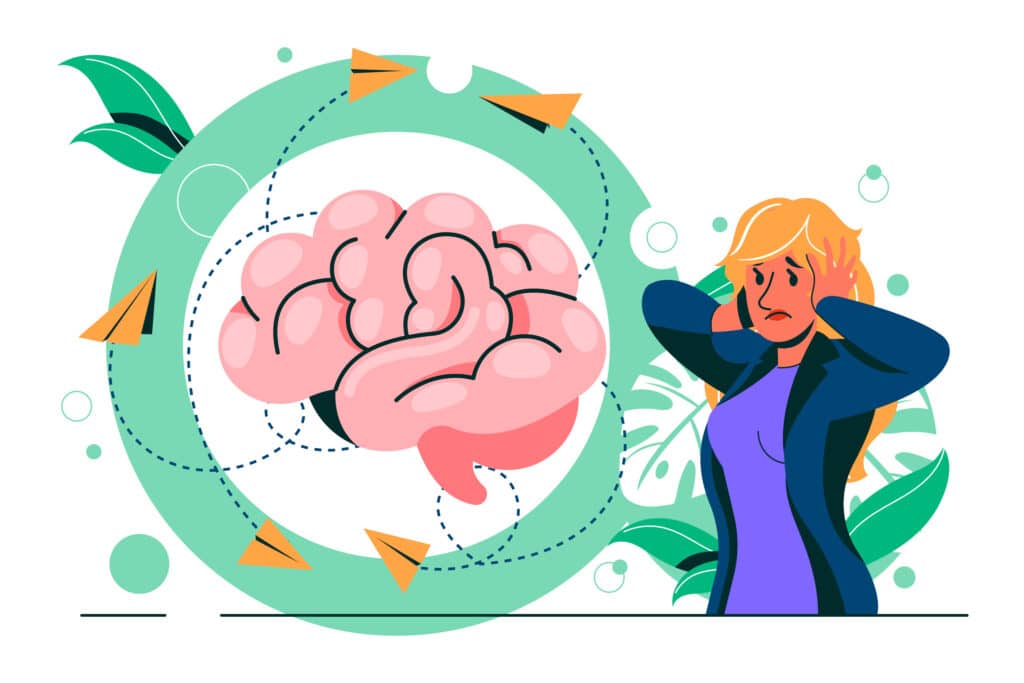Resveratrol And Brain Health
Are you concerned about your brain health as you age? Resveratrol, a compound found in red wine and certain foods, has been linked to potential cognitive benefits. Did you know that resveratrol can improve blood flow and reduce inflammation in the brain? This article will explore the latest research on resveratrol and its effects on brain health. Ready to unlock the secrets of better brain function with resveratrol?
Key Takeaways
-
- Resveratrol is a natural compound found in grapes, berries, and red wine that may help keep our brains healthy. It acts like an antioxidant and could protect against brain diseases as we get older.
-
- Studies show resveratrol can improve memory and thinking skills. Taking it might even make the brain act younger than it is.
-
- This substance also has the potential to treat Alzheimer’s and Parkinson’s disease by protecting brain cells from damage.
-
- Scientists are learning more about how much resveratrol people should take to boost their brains. Early research looks good, but there’s still more to learn.
-
- In addition to its effects on the brain, resveratrol may have anti-cancer benefits without harmful side effects.
Explanation of Resveratrol and its potential benefits for brain health
Studies with old rats showed resveratrol helped them grow new brain connections and blood vessels in important memory-linked areas.
People are also looking into how it may help our brains as we age. Resveratrol seems to turn on proteins called sirtuins that deal with aging. Early research shows it could guard against diseases like Alzheimer’s by helping the brain work well and stay healthy over time.
This is why taking resveratrol could be good for keeping our minds sharp as we age.
Effects of Resveratrol on Cognitive Decline
Resveratrol has shown neuroprotective effects in preclinical models, suggesting potential benefits for cognitive decline. Studies on humans have also indicated positive effects of resveratrol supplementation on cognitive function, indicating its potential role in promoting brain health.
Neuroprotection in preclinical models
Scientists have tested animals and found that resveratrol can protect brain cells. This could help stop problems with thinking and memory. When they give resveratrol to animals, their brains work better and stay healthy longer.
These tests give us hope that resveratrol might do the same for people’s brains.
Studies also show that this substance may help fight diseases that hurt the brain, like Alzheimer’s disease. Now, let’s see how it affects humans growing older or dealing with brain health issues.
Effects on cognitive decline in humans

While resveratrol shows promise in lab models for brain protection, its impact on humans also looks hopeful. Studies have found that this substance can help with memory and thinking skills.
For example, taking resveratrol supplements has helped people remember things better and use glucose more effectively in their bodies. This is important because our brains need glucose to work right.
What’s even more exciting is how it might slow down the aging of our brains. Some research suggests that resveratrol could make your brain act like it’s up to 10 years younger! It seems to help by keeping blood flow steady in the brain and protecting cells from damage.
People with mild problems in their thinking skills have seen benefits from taking resveratrol, too. After using this supplement, they show improvements that suggest their brains are working better.
Latest Research on Resveratrol and Brain Health
The latest research on resveratrol and brain health includes a scientometric study that conducted a literature search and analysis and studies on healthy young adults, older adults, and post-menopausal women.
Additionally, there are ongoing investigations into the potential link between resveratrol and neurodegenerative diseases such as Alzheimer’s and Parkinson’s.
Scientometric study: literature search and analysis
Scientists have been digging deep into how resveratrol might help our brains. They gathered tons of studies and looked at them carefully. What they found was pretty cool — taking resveratrol for a while could make your brain work better.
But here’s the tricky part: they’re still trying to figure out the right amount of resveratrol people should take to boost their thinking skills.
Resveratrol is showing promise in protecting brains from big problems like Parkinson’s disease, according to research on animals. It’s a bit tougher for humans since everyone’s different, and there isn’t a one-size-fits-all answer yet.
Researchers are working hard to learn more about this so they can give good advice in the future.
Studies on healthy young adults, older adults, and post-menopausal women
Studies on resveratrol and brain health have shown promising results across different age groups. In post-menopausal women, regular resveratrol consumption has demonstrated its potential to enhance cognitive and cerebrovascular functions.
Interestingly, a study revealed that resveratrol supplementation led to a significant 33% improvement in overall cognitive performance in women aged 65. Moreover, it is hypothesized that resveratrol optimizes cerebrovascular reactivity, potentially contributing to enhanced cognitive performance and mood among post-menopausal women.
In addition, research has indicated that resveratrol also holds promise for healthy young adults and older adults. Resveratrol may benefit brain aging and could play a role in reversing cognitive decline.
Resveratrol and neurodegenerative diseases (Alzheimer’s, Parkinson’s)
Resveratrol has been found to have the potential to treat Alzheimer\’s and Parkinson\’s diseases. It’s being studied for its ability to prevent these neurodegenerative conditions. This natural compound is believed to offer protection against cognitive decline, providing hope for those concerned about brain health.
Additionally, research suggests that Resveratrol derivatives could be a promising avenue for treatment in the future. These findings highlight the significant role Resveratrol may play in preventing and managing neurodegenerative diseases like Alzheimer’s and Parkinson’s.
Potential Therapeutic Uses of Resveratrol
Resveratrol has shown promising neuroprotective effects and is being studied for its potential therapeutic uses in treating neurological disorders, such as Alzheimer’s and Parkinson’s disease.
Continue reading the blog to learn more about the exciting research surrounding Resveratrol and its implications for brain health.
Neuroprotective effects

Resveratrol, found in red grapes and berries, shows promise in protecting the brain. It has antioxidants that can reduce inflammation and protect nerve cells. Studies suggest that resveratrol may help decrease damage to the brain from conditions like Alzheimer’s disease and strokes.
Additionally, resveratrol has been linked to improving brain health by reducing toxic substances that can harm nerve cells. Its anti-inflammatory properties make it a potential ally against brain aging and diseases like Parkinson’s.
Research indicates that resveratrol possesses neuroprotective abilities that could aid in preventing cognitive decline or neurological disorders later in life.
Treatment for neurological disorders
Resveratrol shows potential in treating neurological disorders like Parkinson’s disease and Alzheimer’s. It has brain-protective effects, which means it could be beneficial for conditions affecting the brain.
Research suggests resveratrol may improve cerebral blood flow and function, showing promise for cognitive health. Studies also indicate its positive effects on chronic diseases such as diabetes and cardiovascular issues, highlighting its potential therapeutic benefits for various neurological conditions.
Furthermore, clinical trials have demonstrated that resveratrol is well-tolerated and can offer therapeutic advantages for neurological disorders. Its ability to cross the blood-brain barrier makes it a hopeful candidate for treating these conditions, emphasizing resveratrol’s importance in addressing neurological concerns.
Anti-cancer activity
Resveratrol has shown chemo-preventive and therapeutic effects against various cancers, including breast, prostate, and colon cancer. It can stop the initial tumor formation process and reduce the production of harmful free radicals due to its antioxidant properties.
This natural compound also has anti-inflammatory abilities that are beneficial for cancer treatment. Importantly, resveratrol appears to have no severe side effects or toxicity, making it a promising option for developing anti-cancer drugs.
Research has found that resveratrol hinders abnormal signaling pathways related to cancer development at a molecular level. Moreover, this compound demonstrates a potential to slow down the progression of tumors.
Future Perspectives
Further research on the potential therapeutic uses of resveratrol, particularly in improving brain aging and reversing cognitive decline, is essential to unlock its full benefits for brain health.
Exploring resveratrol’s neuroprotective effects and its role in treating neurological disorders holds promise for future advancements in brain health.
Need for further research
Research on resveratrol’s impact on brain health has shown promising results, but further investigation is required to understand its potential benefits fully. Studies have indicated the need for more in-depth exploration into the mechanisms of how resveratrol improves cognitive function and protects against neurological disorders.
Additionally, the long-term effects of chronic intake and its potential therapeutic uses, especially in treating neurological disorders like Alzheimer’s and Parkinson’s disease, require extensive research.
Furthermore, clinical trials are needed to assess resveratrol’s effectiveness in reducing biomarkers associated with these diseases and enhancing overall brain health.
The role of resveratrol in modulating cerebral blood flow variables also warrants further exploration, as does its impact on mitigating brain ischemic stroke. Moreover, studies indicating the need to assess healthy volunteers’ metabolic functions after multiple doses highlight the necessity for ongoing research.
Potential for improving brain aging and reversing cognitive decline
While further research is needed, resveratrol shows promising potential for improving brain aging and reversing cognitive decline. Long-term studies indicate that this compound can reverse cognitive aging by up to ten years due to its strong anti-aging effects on the brain.
Moreover, resveratrol has been found to enhance memory and delay the decline in brain function, making it an exciting prospect for those seeking to maintain cognitive health as they age.
Resveratrol’s ability to improve cerebral blood flow and vasodilation also contributes significantly to its potential in promoting healthy brain aging and combating cognitive decline.
FAQs
Q: What is resveratrol, and how does it impact brain health?
A: Resveratrol is a natural compound in red grapes and other plants. It has been studied for its neuroprotective effects and potential benefits for cognitive function.
Q: What are the cognitive benefits of resveratrol?
A: Research suggests that resveratrol may have positive effects on learning and memory and potential benefits for cognitive function in patients with mild cognitive impairment.
Q: What is the recommended dose of resveratrol for cognitive health?
A: The optimal dosage of resveratrol for cognitive benefits is still being studied, but most clinical trials have used doses ranging from 250 mg to 1000 mg per day.
Q: Can resveratrol prevent dementia?
A: While more research is needed, some studies have indicated that resveratrol may have protective effects against the progression from mild cognitive impairment to dementia.
Q: What does the research say about resveratrol’s effects on cognition in postmenopausal women?
A: Studies, including pilot studies and systematic reviews, suggest that resveratrol supplementation may improve cognitive function in postmenopausal women.
Q: How does resveratrol impact glucose control in humans?
A: Research has shown that resveratrol may positively affect glucose control, particularly in individuals with type 2 diabetes.
Q: What is the evidence for the neuroprotective effect of resveratrol?
A: Research, including studies conducted at the University of Newcastle’s Clinical Nutrition Research Centre, has shown that resveratrol can activate and protect endothelial function, which is beneficial for brain health.
Q: According to clinical studies, what are the potential benefits of resveratrol supplementation?
A: Clinical studies suggest that resveratrol supplementation improved cognition, better memory performance, and enhanced endothelial function.
Q: Is there a placebo effect associated with resveratrol consumption?
A: Some studies have used placebos to control for possible placebo effects, and the results indicate that the benefits of resveratrol are not solely due to placebo effects.
Q: What are the cognitive benefits of resveratrol for patients with mild cognitive impairment?
A: Research has shown that resveratrol supplementation may positively affect cognitive function in individuals with mild cognitive impairment.

